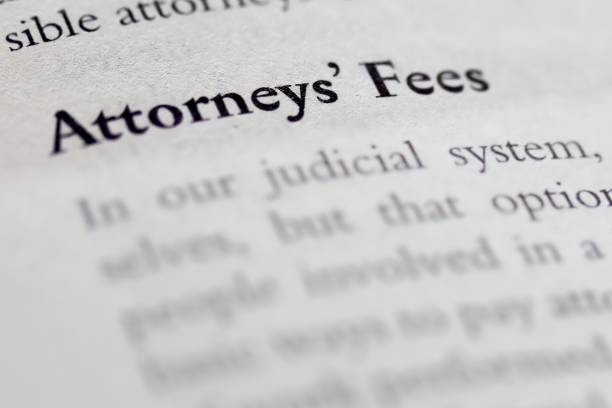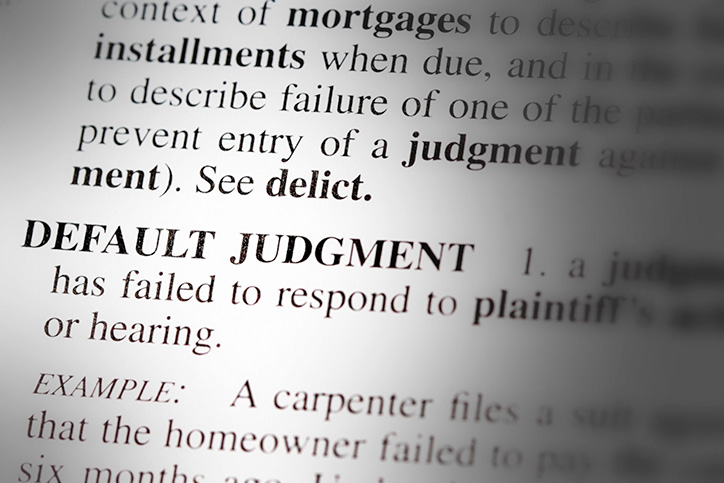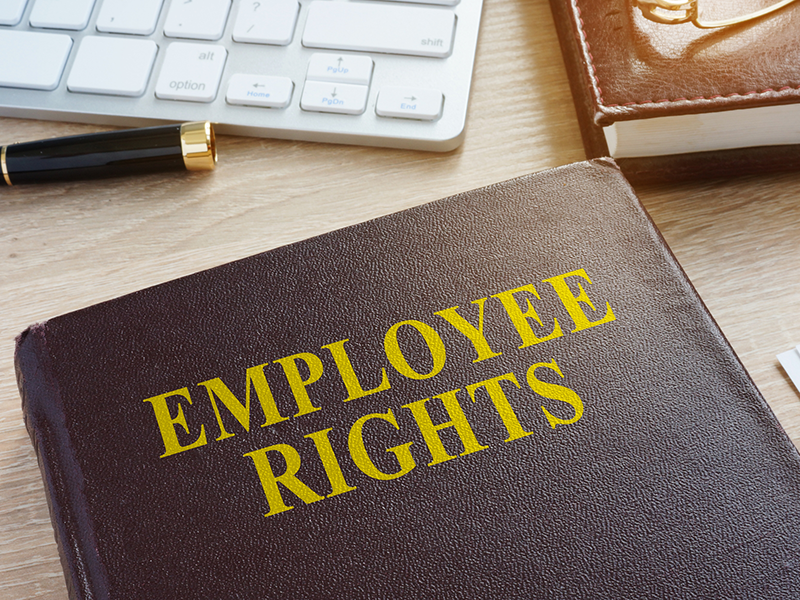
Are Non-Compete Agreements Enforceable in Maryland?
People searching for a new job often discover that an offer of employment comes with a request – or requirement – to sign a non-compete agreement with the new employer. Sometimes these agreements are signed without the job seeker giving full consideration to the implications of signing.
To be enforceable in Maryland, a non-compete agreement must be reasonable in scope, geography, and duration. The agreement must protect a legitimate business interest of the company, and cannot cause undue hardship on the employee’s right to earn a living. Maryland law prohibits non-compete agreements for employees earning less than 150% of the state minimum wage, or when the non-compete agreement would prevent the employee from entering into employment with a new employer or becoming self-employed in the same or similar business or trade as a matter of public policy. Currently, 150% of the state minimum wage is $22.50 per hour ($46,800.00 per year).
For certain health care providers (those providing direct patient care and earning less than $350,000.00 annually), a non-compete agreement may have a duration of no longer than one year from the last day of employment. Such non-compete agreements may not contain a geographical restriction of more than ten miles from the primary place of employment.
Maryland courts evaluate whether a non-compete agreement is reasonable in scope, geography, and duration, and also determine whether the agreement protects a legitimate business interest of the company, imposes undue hardship, and whether the agreement harms the public. A reasonable non-compete agreement must be narrowly tailored to protect the employer’s business interest. It cannot pose an undue hardship on the former employee. Geographically, the limitation must not be any wider than necessary for the protection of the employer’s business.
How Should Your Business Tailor Its Non-Compete in Maryland?
First, an employer must determine the scope of its business and what it seeks to protect with the non-compete agreement. Next, an employer must determine its geographical scope within which it conducts business. Contacting a business attorney can assist an employer with drafting an enforceable agreement that can be tailored to specific employees to meet the legal requirements for enforceability.
What Employees Should Do Before Signing or Violating a Non-Compete?
When an employee is presented with any type of non-compete, whether as part of an initial hiring or during the course of employment, the employee should not assume it is enforceable – but it might be. The employee should read the entire document and consult with an attorney to learn about the risks to the employee should the employee choose to sign the document. These agreements can contain penalties for violation of the non-compete, including an injunction and payment of attorney’s fees to the employer should a breach of the agreement occur.
Lewicky, O’Connor, Hunt & Meiser stands ready to review proposed non-compete agreements, whether you are a business or an employee seeking advice. None of the information provided in this article constitutes legal advice. Every situation is different and should be thoroughly reviewed by and discussed with your legal advisors. Please do not rely on the contents of this article as a basis for making decisions regarding your particular situation. Please call us to schedule a consultation at (410) 489-1996.

What should you do if you are served with a civil lawsuit?
-
Contact a lawyer.
Nobody likes receiving delivery of court documents and finding out they are a defendant in a civil lawsuit – but if you are named as a defendant, be sure to consult with an attorney as soon as possible who is licensed to practice in your state or jurisdiction. Don’t be afraid to ask your lawyer questions during your initial consultation. The more information you provide during this initial meeting, the better your attorney will be able to assist you.
-
Be mindful of deadlines.
A response to the lawsuit will need to be filed with the court within a fixed period of time, calculated from the date on which you received written notice of the lawsuit. Read the delivered papers carefully, and be sure to ask your attorney about your responsive filing deadline.
-
Know your options and your rights.
After receiving notice that you have been named in a lawsuit, you may be tempted to directly contact the person or company that filed, without first consulting an attorney. Giving a written or verbal response to the plaintiff or the plaintiff’s attorney, without first receiving advice from your own attorney, could be very detrimental to your defense. It is essential to have the benefit of professional legal advice and guidance before submitting any response to the person or company that has brought suit.
If you have been served with a lawsuit brought in courts located in Maryland or the District of Columbia, Lewicky, O’Connor, Hunt & Meiser stands ready to provide legal support to you. Call our office at (410) 489-1996 to schedule a consultation with an attorney who can provide you with options and guide you through the litigation process.
None of the information provided in this article constitutes legal advice. Every situation is different and should be thoroughly reviewed by and discussed with your legal advisors. Please do not rely on the contents of this article as the basis for making decisions regarding your particular situation.

If I Successfully Bring a Lawsuit, Will I be Reimbursed for My Attorneys’ Fees?
One of the most common questions I hear during initial consultations with clients is whether an individual or business can recover attorneys’ fees if they prevail in a lawsuit. The answer is…it depends. Maryland generally follows the “American Rule” that each party in a lawsuit is responsible for their own attorneys’ fees, unless there is a statute allowing for fee-shifting, the parties to the lawsuit have previously entered into a contract allowing for the recovery of attorneys’ fees, or a lawsuit is brought in bad faith.
Even in these situations, one must first prevail in the lawsuit to be awarded reimbursement of attorneys’ fees. Even if a party wins the lawsuit, in the sense of having the court find that the other side is liable or contractually obligated to the other, the court still has discretion regarding the amount of attorneys’ fees to award to the prevailing party. The court must determine that the amount of attorneys’ fees being sought is reasonable under the circumstances.
For these reasons, even if there is a statutory or contractual basis to seek reimbursement of attorneys’ fees in a lawsuit, that does not guarantee that a prevailing litigant will be reimbursed 100% of their attorneys’ fees. If there is a statutory or contractual basis to seek reimbursement of fees, it is still the judge presiding over the case that will make the final determination regarding reimbursement of attorney’s fees.
Statutory Basis for Recovering Attorney’s Fees
Maryland law allows for recovery of attorney’s fees in cases alleging violations of the Maryland Consumer Protection Act and Maryland Wage Payment and Collection Act. Attorney’s fees can also be sought in cases involving mechanic’s liens, certain landlord-tenant actions, and certain divorce and family law actions.
Contractual Basis for Recovering Attorney’s Fees
A written contract between the parties may state, within its terms, that a party to the contract can be awarded attorneys’ fees from the other party to the contract in the event of a breach of the parties’ agreement. If this type of provision is in a contract, a litigant may assert a claim for attorneys’ fees as part of the lawsuit. The party seeking reimbursement would still need to prevail on the merits of the case to recover attorneys’ fees.
Maryland Rule 1-341
Maryland Rule 1-341 allows a judge to award attorneys’ fees to a defendant if a civil lawsuit is brought in bad faith. The court assesses whether the conduct of any litigant is “without substantial justification,” in which case the court may, in its discretion, award attorney’s fees to the non-offending party.
If you are considering whether to engage in litigation, it is important to discuss your situation with an attorney to assess whether you have a good faith basis for claiming reimbursement of attorneys’ fees. None of the information provided in this article constitutes legal advice. Every situation is different and should be thoroughly reviewed by and discussed with your legal advisors. The law regarding reimbursement of attorneys’ fees may be different than what is summarized here in states and jurisdictions other than Maryland. Please do not rely on the contents of this article as a basis for making decisions regarding your particular situation.

You Failed to Appear in Court After Being Served with a Lawsuit – Now What?
If you are served with a writ of summons or other documents related to a lawsuit in which you are named as a party to the lawsuit, it is very important that you file a responsive paper with the court within the time period established by law for doing so. Do not delay, or ignore this type of legal paper. Prompt consultation with an attorney is strongly advised. The deadline for filing a responsive paper with the court after receiving delivery of a writ of summons or other court papers depends on the situation, but any such deadline will probably be stated on the face of the writ of summons document.
If you do not file a responsive paper with the court prior to the deadline for doing so, the court can enter an “Order of Default” and/or a “Judgment of Default.” The District Court of Maryland, the Circuit Courts in Maryland, and the U.S. District Court for the District of Maryland, all have different filing deadlines and differing rules and standards for what happens when a defendant fails to make a timely appearance in a lawsuit. This article briefly and generally summarizes this topic, but the rules are complicated and the potential harm from non-compliance can be substantial, so you should promptly contact an attorney for representation and assistance.
District Court of Maryland
The Maryland Rules of Civil Procedure provide that a defendant named in a District Court of Maryland lawsuit must file a Notice of Intention to Defend within a specified time period after being served. If a defendant fails to file a Notice of Intention to Defend, then the court may assess liability against the defendant on the scheduled trial date. If a defendant fails to file a Notice of Intention to Defend, the court may enter judgment against the defendant for the full amount of damages claimed in the Complaint if the court is satisfied with the information stated in the complaint and the complaint is property signed as an affidavit under oath by the plaintiff. Sometimes the District Court will find that a complaint sets forth sufficient information for the entry of judgment against the defendant as far as liability is concerned, but will hold an evidentiary hearing only as to the question of the amount of monetary damages to be awarded. Defendants should file a Notice of Intention to Defend within the time period set forth in the writ of summons for doing so. Even if that deadline is missed, a defendant should still file a Notice of Intention to Defend prior to the scheduled trial date, or at the latest should appear on the scheduled trial date and submit a Notice of Intention to Defend to the court at that time.
Maryland Circuit Courts
In the Maryland Circuit Courts, a defendant that fails to file an Answer or other responsive pleading within the specified time for doing so may have an Order of Default against the defendant. An Order of Default may thereafter be vacated by the court if the defendant appears before the court within a set time period and states good cause for why the filing deadline was missed. If the Order of Default is not vacated, the court thereafter may enter a Judgment of Default against the defendant in the full amount claimed by the plaintiff in the complaint.
In the District Court of Maryland and in Maryland Circuit Courts there are specific deadlines that must be adhered to in order to preserve a litigant’s right to present a defense and avoid entry of judgment by default. If you find yourself in this situation, contact an attorney to advise you on the best course of action.
None of the information provided in this article constitutes legal advice. Every situation is different and should be thoroughly reviewed by and discussed with your legal advisors. The above general summary is not a comprehensive discussion of the subject matter, nor is it applicable to states or jurisdictions outside of the State of Maryland. Please do not rely on the contents of this article as a basis for making decisions regarding your particular situation.

Appealing a Decision of the National Labor Relations Board
In 1935, Congress enacted the National Labor Relations Act (the “Act”) and created the National Labor Relations Board (“NLRB”). The NLRB was formed to adjudicate disputes between employers and employees, while protecting the rights of employees to choose for themselves whether to engage in protected activities such as collective bargaining. The NLRB’s mission is to provide a pathway to dispute resolution without causing business interruptions and disruptions in the flow of commerce that can occur from employee strikes and other protests. The NLRB handles disputes related to union representation and unfair labor practices. Employment lawyers can assist clients in preparing and filing a charge with the NLRB for either of these avenues. Unfair labor practices, as defined in the Act, include an employer interfering with an employee’s right to self-organize, form, or join a labor organization, and collective bargaining. Among the statute’s list of defined activities, unfair labor practices also includes discrimination or termination of an employee for filing charges or providing testimony under the Act.
If an employee receives an unfavorable decision from the NLRB, he or she has the right to appeal the decision. There are different paths for appeal, depending on the stage in the process and the type of claim. If the NLRB refuses to pursue a complaint on behalf of a party, an appeal can be submitted to the General Counsel for review. If an administrative law judge issues an adverse decision, that decision can be appealed to a U.S. Court of Appeals, and then ultimately to the U.S. Supreme Court.
Appeals have specific deadlines, and can require submission of briefs and sometimes oral argument, which are best discussed during a consultation with an employment lawyer. None of the information provided in this article constitutes legal advice. Every situation is different and should be thoroughly reviewed by and discussed with your legal advisors. Please do not rely on the contents of this article as a basis for making decisions regarding your particular situation.

Protecting Your Older or Susceptible Family Members from Financial Exploitation
According to the National Council on Aging, scammers are targeting older adults at increased rates, in an effort to gain trust and steal money. Scams include fake profiles on online dating sites, impersonation of grandchildren, and technical support scams.
Maryland law allows a private right of action to protect older or susceptible adults from financial exploitation. If you are an authorized representative of an older or susceptible adult, you may also bring a lawsuit on their behalf to recover any property, income, resources, or trust funds that were taken or used illegally. This law is known as the SAFE Act. Older adults are defined as over the age of 68, while susceptible adults are those persons who cannot operate one or more of their daily living activities, or have diminished executive functioning due to a variety of factors as defined by the statute.
If you are a victim of financial exploitation or an authorized representative of a victim and have questions, Lewicky, O’Connor, Hunt & Meiser stands ready to provide legal support to you. None of the information provided in this article constitutes legal advice. Every situation is different and should be thoroughly reviewed by and discussed with your legal advisors. Please do not rely on the contents of this article as a basis for making decisions regarding your particular situation. Please call us to schedule a consultation at (410) 489-1996.

You Established a Guardianship. Now what?
In Maryland, you can be a court-appointed guardian of the person and/or the property of a minor child or a disabled person. Once the court process for seeking a guardianship is complete and a guardianship order is issued, the newly-appointed guardian has rights and responsibilities under the law. All guardians must file an annual or biannual report with the court.
Guardianship of a Person
A court, through issuance of an order, may grant the guardian of a disabled person the same rights, powers, and duties that a parent would have over a minor child. For a disabled person, a guardianship order can allow the guardian to establish the disabled person’s home. Guardians can also be given the authority to make medical decisions, including determining a medical course of treatment. While guardians have powers, they also have responsibilities. Court-appointed guardians have a duty to provide for the disabled person, including ensuring provision of medical care, comfort, and clothing, and fostering friendships. Guardians must keep records and periodically report to the supervising court.
Guardianship of Property
A guardian of the property of a minor or of a disabled person has the powers of a fiduciary. A fiduciary is a trustee who may make decisions on behalf of the minor child or disabled person, including decisions regarding investments, mortgages, leases, or borrowing money, for the purpose of protecting the minor or disabled person’s property. A fiduciary may retain the assets of the minor or disabled person, and may receive assets from any sources on the person’s behalf. Guardians of the property may also make charitable contributions, protect the minor’s or disabled person’s property from damage, loss, and liability, and may pay taxes. Guardians may also employ attorneys, as needed.
None of the information provided in this article constitutes legal advice. Every situation is different and should be thoroughly reviewed by and discussed with your legal advisors. Please do not rely on the contents of this article as a basis for making decisions regarding your particular situation. If you are a court-appointed guardian and have questions, or wish to petition the court to establish a guardianship, Lewicky, O’Connor, Hunt & Meiser stands ready to provide legal support to you. Please call us to schedule a consultation at (410) 489-1996.

Are Federal Employees at a Fork in the Road? Know Your Rights.
Federal civil service employees, or career employees of the U.S. federal government, have the constitutional right not to be deprived of property without due process. In the employment context, this means civil service employees are entitled to an opportunity to respond prior to termination of employment decisions, and may resort to post-termination administrative proceedings to challenge an employment termination. Due process provides a government employee the right to notice, and a meaningful opportunity to be heard.
Prohibited Personnel Actions
A legal framework exists to ensure that no federal employee is removed from their job, suspended for more than 14 days, is reduced in pay or in grade, or is furloughed for 30 days or less — without 30 days’ notice from the agency and a reasonable time to respond to the notice. Adverse actions that do not comply with these requirements can be appealed to the Merit Systems Protection Board.
Discrimination
Federal employees cannot be discriminated against on the basis of race, color, religion, sex, national origin, age, disability, genetic information, pregnancy, or childbirth, nor retaliated against for engaging in a protected activity as defined in Title VII of the Civil Rights Act, the Age Discrimination in Employment Act (ADEA), the Equal Pay Act, or the Rehabilitation Act. Discrimination in employment based on a protection afforded under these statutes or others is appealable to the Equal Employment Opportunity Commission, subject to specific filing deadlines.
Federal employees have the right to appeal adverse personnel decisions or discriminatory actions taken against them by the Government. First, one must determine their status as an employee. Federal law defines an employee as an individual in the competitive civil service who is not in their probationary period, or who has completed one year of continuous service, or “an individual in the excepted service . . . who has completed 2 years of current continuous service in the same or similar positions in an Executive agency under other than a temporary appointment limited to 2 years or less.”
There are some instances where a probationary Federal employee can appeal a termination decision when a Federal government agency takes adverse action against them, but generally, probationary employees do not have the full protections that non-probationary federal employees have.
None of the information provided in this article constitutes legal advice. Every situation is different and should be thoroughly reviewed by and discussed with your legal advisors. Please do not rely on the contents of this article as the basis for making decisions regarding your particular situation. If you are facing an adverse Government employment action or employment discrimination, and reside in the State of Maryland, Lewicky, O’Connor, Hunt & Meiser stands ready to provide legal support to you.

The Appellate Court of Maryland Clarifies State Corporate Law in Mekhaya v. Eastland Food Corporation
The Appellate Court of Maryland, in its recent decision in Mekhaya v. Eastland Food Corporation, brought Maryland law in line with the corporate laws of other states, expanding shareholders’ rights. This case changed Maryland business law in several respects. Corporate shareholders now may assert some types of claims directly on their own behalf, even without a written agreement. The court in this decision also limited the “business judgment rule,” and addressed “de facto” dividends.
Clarification of Shareholders’ Rights
The Mekhaya decision is significant because it broadens shareholders’ rights to assert claims against a corporation. Prior to this decision, when addressing a dispute among shareholders, Maryland courts looked to the shareholders’ written agreement or their employment agreements to determine what rights are provided to the shareholder under the agreement. A shareholder was then able to assert a “shareholder derivative claim” on behalf of the corporation. If successful, such a suit would result in the corporation recovering monetary damages if the suit is successful (with the shareholder indirectly receiving benefit, in the role as a shareholder). In the Mekhaya case, however, the shareholders did not have a written shareholder agreement, so the court instead considered what it believed to be the reasonable expectations of the shareholders to determine if the particular shareholder asserting the claim had direct standing to sue the corporation, and to recover damages personally. As a result of this decision, shareholders in Maryland corporations can bring direct claims against a corporation in some situations, and potentially recover damages in their personal capacity. In the Mekhaya case, the shareholder was permitted to assert direct claims of shareholder oppression, breach of fiduciary duty, and unjust enrichment.
Limiting the Business Judgment Rule
The court’s opinion also held the business judgment rule inapplicable to direct claims of shareholders, if the shareholder can show a breach of fiduciary duty owed to the shareholder, and that the shareholder was personally harmed, even without showing an injury to the corporation. The court remanded the case for a determination as to whether the shareholder’s expectations were objectively reasonable.
“De Facto” Dividends
The court also acknowledged ambiguity in the states Corporations and Associations Code, and concluded that some distributions to shareholders may be considered “de facto” dividends, even if the payments are disguised as a large bonus, and not labeled as dividends. The Mekhaya court concluded that a payment to a shareholder might constitute a dividend, even when included as part of a shareholder’s salary as a corporate employee or director.
Lewicky, O’Connor, Hunt & Meiser can answer questions and provide legal guidance to businesses about their legal rights and obligations. We help companies prepare shareholder agreements to avoid future issues of legal interpretation. Please contact us at [email protected] or (410) 489-1996.

A New Paid Family and Medical Leave Insurance Program Takes Effect in Maryland
A new law taking effect in Maryland this year requires many employers in the state to offer paid family and medical leave benefits to their employees. The Maryland General Assembly passed the Time to Care Act (SB 275) on April 9, 2022, but the law takes effect in 2023. This makes Maryland the tenth state in the nation to establish a paid family and medical leave insurance program. This law applies to employers with at least 15 employees, where at least one employee works in Maryland. It does not apply to businesses in which the owner is the sole employee, such as a single-member limited liability company, sole proprietorship, or a C or S corporation. Self-employed individuals may opt into the program. Employers and employees will begin making contributions to the program starting October 1, 2023, with payouts to employees beginning January 1, 2025. The Maryland Department of Labor (“MDOL”) will be responsible for administering and enforcing the program and will determine the rates of contributions by employers and employees by June 1, 2023.
The Maryland Time to Care Act provides up to twelve weeks of wage-replacement benefits from $50 to $1,000 per week to employees who have worked 680 hours in the last twelve months prior to the time the employee is requesting leave. The leave can be continuous or intermittent. The same employee may have up to an additional twelve weeks if the employee has a newborn and a serious health condition preventing the employee from performing the functions of the employee’s job.
Beginning in 2025, employees will be able to submit a claim for benefits and qualify for leave for any of the following reasons:
- Care for a newborn child, newly adopted child, foster care placement, or kinship care with the employee during the first year after the birth, adoption, or placement
- Care for a family member with a serious health condition
- Care for the employee’s own serious health condition
- Care for a service member with a serious health condition resulting from military service who is the employee’s next of kin
- If the employee has to attend to a “qualifying exigency” due to a family member’s military deployment
For employers, the Maryland Time to Care Act means additional payroll withholding and payout that businesses will want to factor into their future planning. Additional compliance issues may arise as well, as the law requires employers to provide proper notice to employees about the benefits, and specific payments into the program and eventually to employees requesting leave. Under the new law, the MDOL may investigate alleged violations of the law. Failure of employers to contribute to the program or to pay their employees may result in fines, back wages to the employee, court-assessed punitive damages, and payment of reasonable attorney’s fees.
Notice will be required by both employers and employees. Employees are required to notify their employer with written notice of their intention to take leave at least 30 days prior to taking the leave if the leave is foreseeable. If the leave is not foreseeable, then an employee needs to give their employer notice as soon as practicable and comply with the employer’s procedural requirements for requesting and reporting the leave. Employers are required to provide notice of the law’s rights to employees, and an employer must provide notice of eligibility to an employee within five business days of the employee’s request for leave.
As further guidance is released, Lewicky, O’Connor, Hunt & Meiser will be able to answer questions and provide legal guidance to businesses about their legal rights and obligations under the Maryland Time to Care Act. We can also assist those looking to form a new business to ensure legal compliance. Please contact us at [email protected] or (410) 489-1996.
